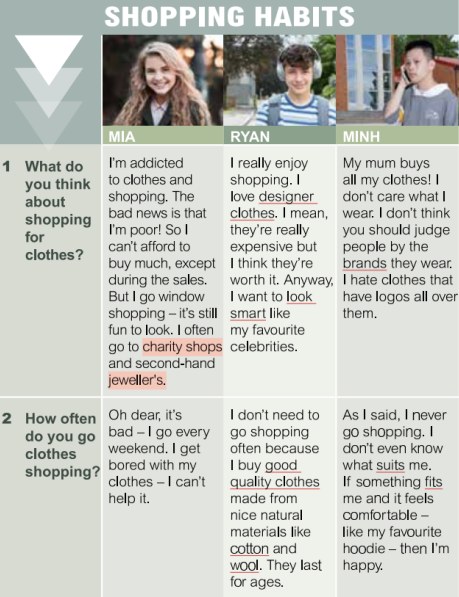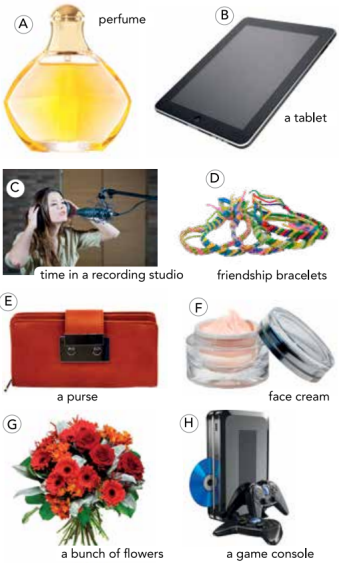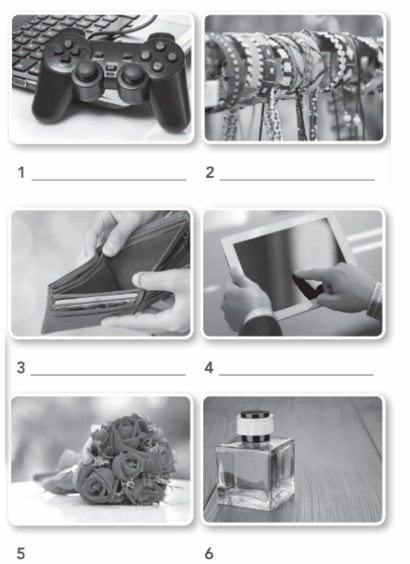Giải SGK, SBT Unit 9. Consumer society English Discovery
Giải SGK, SBT Unit 9 English Discovery
2. Read the GRAMMAR FOCUS. Complete the examples in the table using the passive forms in blue in the text in Exercise 1.
(Đọc NGỮ PHÁP TRỌNG TÂM. Hoàn thành các ví dụ trong bảng bằng cách sử dụng các dạng bị động có màu xanh lam trong văn bản ở Bài tập 1.)
GRAMMAR FOCUS
The Passive
You use passive forms when it isn't important (or you don't know) who performed the action. Passive verbs have the same tenses as active verbs.
The Passive: be + past participle
|
+ |
Fairtrade products are grown in developing countries. |
|
- |
Fairtrade products aren't grown in developing countries. |
|
? |
Where are Fairtrade products grown? |
Present Simple
Active
People don’t pay farmers enough.
Passive
Farmers ______enough.
Pass Simple
Active
In 1997, some body formed one international Fairtrade organisation.
Passive
In 1997, one international Fairtrade organisation____
Present Perfect
Active
Fairtrade has improved the lives of approximately seven million people in developing countries
Passive
The lives of approximately Seven million people in developing countries ____ by Fairtrade
5. Work in groups of three. Use the following questions to ask your friends and fill the answers into the table.
(Làm việc theo nhóm ba người. Sử dụng các câu hỏi sau để hỏi bạn bè của bạn và điền câu trả lời vào bảng.)
|
Questions |
Student A |
Student B |
Student C |
|
1. Is there something you don't want to buy in a market? |
|
|
|
|
2. Is everything in a market affordable to buy? |
|
|
|
1. Tick (✓) any problems that you and your family have had when buying something. Then tell your partner.
(Đánh dấu (✓) bất kỳ vấn đề nào mà bạn và gia đình bạn gặp phải khi mua thứ gì đó. Sau đó nói với bạn của bạn.)
|
1. It was past its sell-by date. |
|
|
2. It didn't work. |
|
|
3. It was broken or damaged. |
|
|
4. Some parts were missing. |
|
|
5. The service was bad. |
|
|
6. The delivery was late. |
|
|
7. It was different from the description. |
|
|
8. It was the wrong product. |
|
2. Read the email on the right. Which tips in the WRITING FOCUS does the email follow? Underline the examples of formal language in the email.
(Đọc email ở bên phải. Email tuân theo những mẹo nào trong phần VIẾT TRỌNG TÂM? Gạch chân các ví dụ về ngôn ngữ trang trọng trong email.)
|
WRITING FOCUS A formal email of complaint 1. Open and close the email or letter formally. 2. Give a reason for writing. 3. Say what you bought and when. 4. Explain the problem and give details of it. 5. Tell the reader what you expect them to do. 6. Use formal language with no contractions. |
Dear Sir or Madam,
I am writing to complain about the service provided by your company.
I bought a pair of headphones (Model: SA DIV-RED) from your website on 3rd March and paid for them online. They arrived the next day. However, when I tried them, they did not work. I returned them to you on 5th March and you exchanged them for a new pair.
Unfortunately, the second pair were the wrong model, so I emailed you again and returned them one more time. I received a third pair of headphones from you today. When I unpacked them, I found they were damaged.
I am very disappointed with your service. I would be grateful if you could send me a full refund for the headphones and the postage costs.
Yours faithfully,
R. Barker
3. Read the LANGUAGE FOCUS. Complete the examples with words and phrases in the email.
(Đọc TRỌNG TÂM NGÔN NGỮ. Hoàn thành các ví dụ với các từ và cụm từ trong email.)
|
LANGUAGE FOCUS Formal language You can make your language more formal by avoiding contractions and using more formal words and expressions. |
|
|
Informal |
Formal |
|
They didn't work. |
They (1) did not work. |
|
I got some headphones. |
I (2) _______ some headphones. |
|
I sent them back. |
I (3) _______ them to you. |
|
You swapped them. |
You (4) _______ them. |
|
I got another pair. |
I (5) _______ another pair. |
|
I’m so upset. |
I (6) _______. |
|
I want all my money back. |
I (7) _______ refund. |
|
Other common words and phrases |
|
|
If you need more information |
If you require further information |
|
I want the chance to chat about this. |
I would like the opportunity to discuss this. |
|
Call us. |
Please contact us. |
|
We’re sorry about the problem. |
We apologise for the problem. |
3. Complete the sentences in the SPEAKING FOCUS with the words in the box. Then listen to the dialogue again and check.
(Hoàn thành các câu trong phần NÓI TRỌNG TÂM với các từ trong hộp. Sau đó nghe lại đoạn hội thoại và kiểm tra.)
|
checking out (kiểm tra) |
you should (bạn nên) |
|
I'll give it a try (Tôi sẽ thử nó) |
That's a good idea (Đó là ý kiến hay) |
|
I ask you for some advice (Tôi hỏi xin bạn một số lời khuyên) |
|
SPEAKING FOCUS
Asking for advice
- Do you mind if (1) __________
- What do you think I should do?
- What do you suggest?
- Have you got any ideas?
- Do you think I should ...?
Giving advice: possible suggestions
- I think (2) _____ buy perfumes.
- Have you thought about (3) _____ her dressing table or bathroom?
- It's generally a good idea to ...
- If I were you I would ...
Responding positively
- (4) __________
- I think you're right - I'll do that!
- Yes, that might help.
- (5) _____ Thanks for your advice.
Responding negatively
- No, I don't think so.
- I don't think that would help.
- I don't think that's the solution, but thanks anyway.
- I've already tried that, but thank you for the suggestion.
4. Read the text and choose the correct answer.
(Đọc văn bản và chọn câu trả lời đúng.)
|
1. A. a jeweller's 2. A. everybody 3. A. many 4. A. something 5. A. pay 6. A. a few |
B. an optician's B. anybody B. much B. nothing B. paid B. a little |
C. a shoe shop C. nobody C. some C. everything C. are paid C. none |
Mystery shopping - a type of market research
Kara, 19, a university student, has an unusual part-time job. She works as a mystery shopper. What does she do? One day she buys a pair of glasses at (1)______, another day she has a meal in a restaurant. She looks like an average customer, but after the visit, she writes a report about the place and sends it to the company's office. This is how the shops or restaurants get information about their goods or services and whether (2)_____ is not satisfied.
'It's the perfect job for me', explains Kara, 'Going shopping has always been my hobby but I don't have (3)______money to buy what I like. With this job, I can have a free meal in an elegant restaurant or get some designer clothes. Mystery shopping also gives me (4)______interesting to do at weekends and during my lunch hours.
Market Force, the company which employs people like Kara, says: 'Mystery shoppers (5)_____ once a month. To make sure that our employees are honest and reliable, we sometimes send (6)_____shoppers to the same place.'










